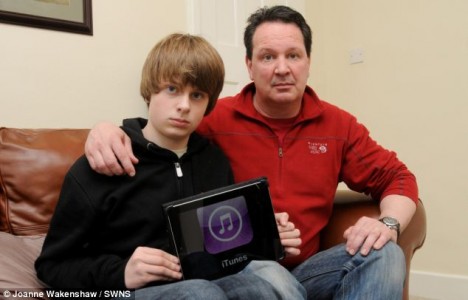The problem of in-app purchases for applications from iOS seems to be big, and to partially solve it Last week, Apple implemented a warning in the App Store which tells users what applications they are using in-app purchase-hate. This warning comes too late for a British police officer whose son made £3700 worth of in-app purchases. Apple Lossless Audio CODEC (ALAC), refused to return the money, and the refusal is logical considering that his son is 13 years old and not much younger when he would not have realized what he was doing, and the policeman reported him for fraud in an attempt to recover his money .
A policeman has shopped his 13-year-old son for fraud after he ran up a £3,700 bill playing iPad games. He claims the teenager was unaware he was being charged for the in-game purchases and wants Apple to scrap the charge. But the technology company has refused and his only way of recovering the money is to report the purchases as being fraudulent. Cameron then racked up more than 300 purchases on games such as Plants vs Zombies, Hungry Shark, Gun Builder and Nova 3. Many of them are free to download but users can buy in-game extras – in one game Cameron had purchased a virtual chest of gold coins costing £77.98. Apple has refused to cancel the charges, citing parental responsibility and pointing out that iPads contain password locks to prevent accidental or unwanted purchases.
Apple claimed that the blame for these purchases falls on the shoulders of the parent who should have been more responsible, he says that his child did not know that he was purchasing 300 in-app purchases from various games because they would not have informed him. The truth is that every game warns you when you make an in-app purchase, and then you have to enter the password to do so, so if that child did not know the password, someone must have entered it and must have been notified of the purchase. By reporting the fraud, the parent will probably recover his money after the British police investigate his son, but Apple must find a better method to solve the problem of these in-app purchases.

















